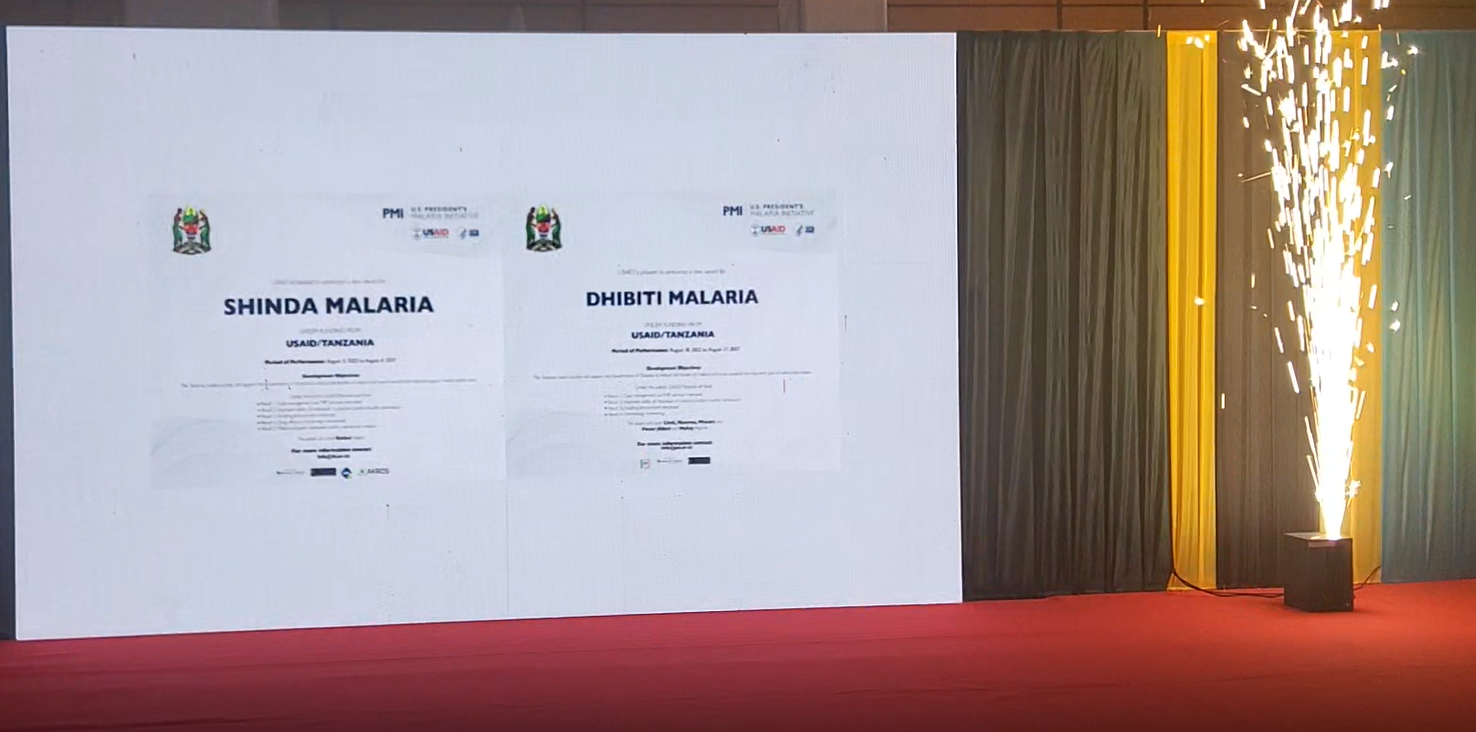
LAUNCH: Health Minister, US envoy unveil “Shinda Malaria” project in Dodoma

Shinda Malaria is officially launched
Today in Dodoma, the Minister of Health, Ummy Mwalimu, and the US Ambassador to Tanzania, Dr. Donald Wright, joined health stakeholders to officially announce the Tanzania Malaria Surveillance Activity (TMSA) project.
The Activity, which has been given the Swahili name of “Shinda Malaria” – denoting defeating or subduing malaria – will be led by Ifakara Health Institute and implemented by a consortium of four partners including Ifakara. Other partners are: Health Information System Program (HISP); Tanzania Communication and Development Center (TCDC) from Tanzania and Akros from Zambia.
Shinda Malaria is a five-year program (August 2022 – August 2027) which supports the Government of Tanzania in reducing malaria burden and in moving towards malaria elimination. The Activity is made possible by the support of the American people through the US President’s Malaria Initiative (PMI) and the United States Agency for International Development (USAID).
The project will address the urgent healthcare needs of malaria at-risk populations, especially vulnerable pregnant women and children under five, and support Tanzania partners to grow and execute malaria programs sustainably and successfully.
Shinda Malaria will primarily work to support both facility- and community-based malaria activities in all five councils of Katavi region, as well as making contributions to the national malaria priorities through the National Malaria Control Program (NMCP).
Celebrating 5 years of impact of malaria support
Mwalimu and Wright used the opportunity to celebrate along with health stakeholders five years of impact of malaria support from two projects – the Okoa Maisha Dhibiti Malaria (“Save Lives End Malaria”) and Impact Malaria activities – which were officially closed.
Over 45 million people are at risk of malaria in Tanzania due to the climate and topography. The U.S. government through PMI has played a key role in reducing malaria prevalence from 18% in 2015 to 7%, according to the latest available data. However, more efforts are needed to achieve elimination.
Since 2006, the U.S. government has contributed more than $661 million through PMI to combat malaria in Tanzania. U.S. investments in malaria have helped strengthen Tanzania’s health system as a whole, and proven essential to tracking the incidence, distribution, and control of malaria. By reducing the prevalence of malaria in Tanzania, the burden is lifted off of families, allowing adults to work and children to attend school.
The two new activities Shinda Malaria and Dhibiti Malaria (“Control Malaria”) – which was officially announced simultaneously with Shinda Malaria - were designed in close collaboration with both the Mainland and Zanzibar Ministries of Health and are indicative of the approach that the United States government, through the U.S. Agency for International Development (USAID), takes with partner countries to ensure U.S. foreign assistance aligns with Tanzanian priorities.
